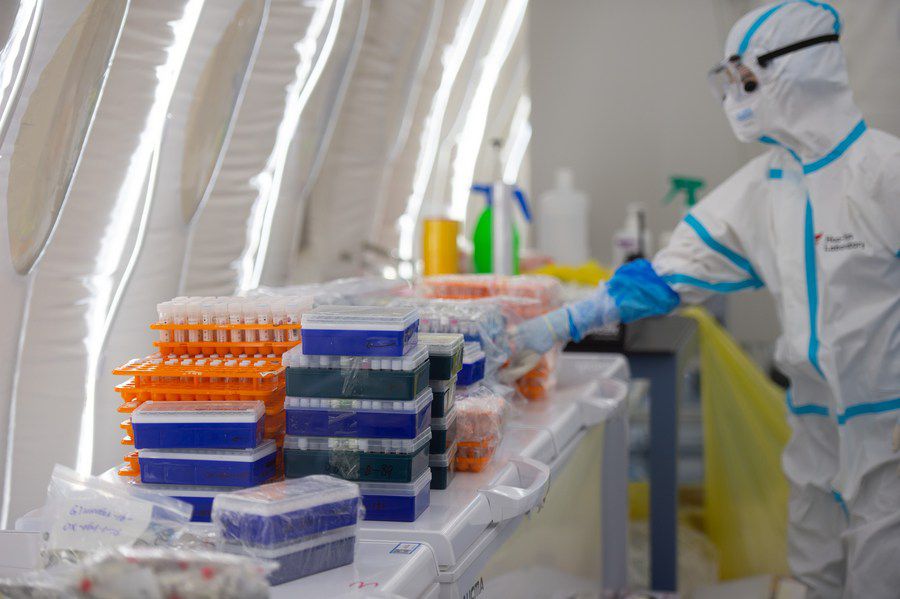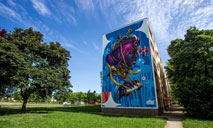Lab-leak theories of COVID-19 political, unscientific, say experts

Photo taken on June 23, 2020 shows a view of an inflatable COVID-19 testing lab at a sports venue in Beijing, capital of China. (Xinhua/Chen Zhonghao)
Ian Lipkin, a researcher at Columbia University who studied into the genetics of the virus said that there's no evidence for human manipulation, and that the way the virus infects people is so quirky that he thinks it couldn't have been made in a lab, according to the NPR report.
WASHINGTON, June 2 (Xinhua) -- More experts from the World Health Organization (WHO) mission team to Wuhan to inquire into the origins of COVID-19 have expressed their disbelief that the virus escaped from a laboratory.
"The evidence right now, well, for the lab side, it's political: It's from an intel agency that's not been shown. That's not scientific," said WHO team member and zoologist Peter Daszak in a podcast last week, according to The Wall Street Journal on Monday. "It's not something that you can really reasonably launch a major audit of."
Peddled by former U.S. President Donald Trump and long dismissed as heresy, the lab-leak theories roared back and culminated last week in the 90 days order President Joe Biden gave to the U.S. intelligence community for a virus origins story.
The evidence faced by President Biden and referred to by Daszak is a "previously undisclosed U.S. intelligence report" about "sick staff" of a Wuhan lab before the COVID-19 outbreak.
However, the Wuhan Institute of Virology had not been exposed to the virus before Dec. 30, 2019, and has not registered any infection among its staff and graduate students, according to authorities.
The WHO said in March that COVID-19 introduction through a laboratory incident was considered to be an "extremely unlikely" pathway, refuting lab-leak theories.
In the absence of any new evidence pointing to a lab accident, the investigation should focus on the main hypothesis -- that the virus naturally crossed from animals to humans outside a laboratory, Thea Fischer, a Danish epidemiologist and another WHO team member, said on the podcast, according to the Journal.
Upon close scrutiny of the virus, other researchers are unconvinced by the lab-leak theories, including Robert Garry, a microbiologist with Tulane University who has analyzed the genome of the virus, according to the National Public Radio (NPR) on Friday.
"Nothing's really tipped me or made me flip-flop or anything about it," he says. "I'm more convinced than ever that this is a natural virus."
Ian Lipkin at the Mailman School of Public Health at Columbia University is another researcher who studied into the genetics of the virus, said the NPR.
He said that there's no evidence for human manipulation, and that the way the virus infects people is so quirky that he thinks it couldn't have been made in a lab, according to the NPR report.
"We would not have known how to design this virus, even if we had wanted to do so," he said. "When I say 'we,' I really do mean the scientific community, whether we mean scientists in Europe or the U.S. or China, for that matter."
Photos
Related Stories
Copyright © 2021 People's Daily Online. All Rights Reserved.










